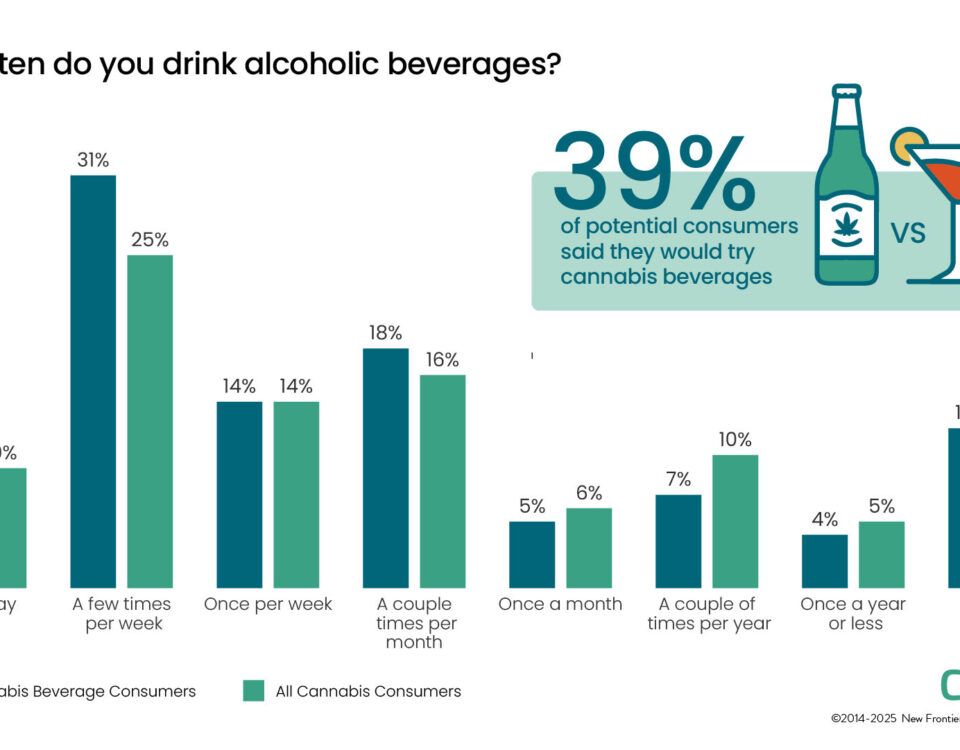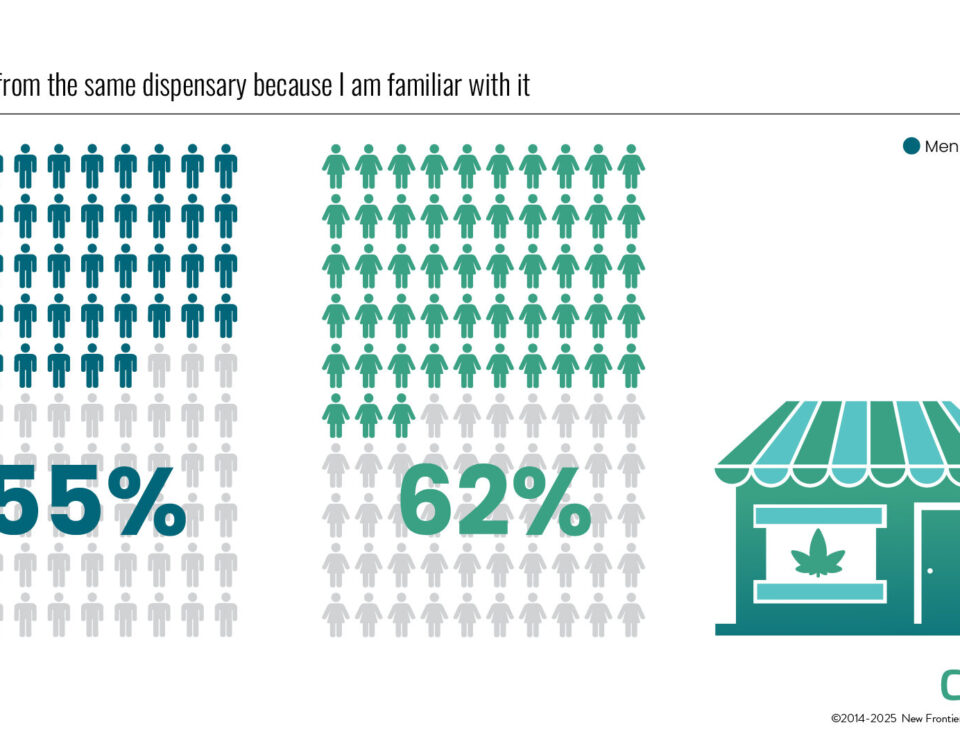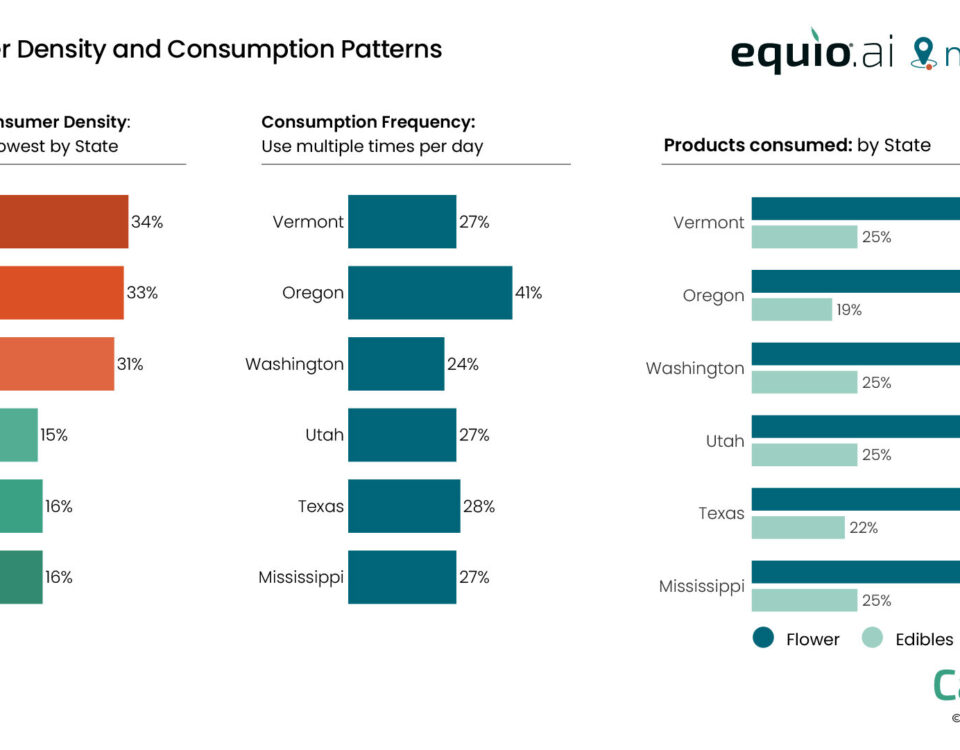Cannabis Questions Bound to Impact Historic Election Outcomes
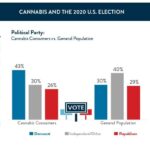
Cannabis and the 2020 U.S. Election
October 25, 2020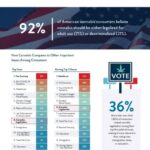
Cannabis on the Ballot
November 1, 2020By Noah Tomares, Research Analyst, New Frontier Data
With the 2020 U.S. presidential and state elections being held next week, and a record amount of early ballots cast, November 3 portends to be historically unique in a number of facets yet to be fully realized. That is likewise true for the cannabis reform movement in general, and the legal cannabis industry specifically.
As has been borne out in recent years, approximately two-thirds of American adults reportedly support full legalization of the plant, marking it among the most rapidly shifting social issues nationwide. No fewer than five U.S. states feature legalization initiatives on their ballots, and at the federal level major Congressional legislation involving the MORE Act was deferred until after the elections and resolution of pressing relief efforts per the COVID-19 pandemic.
The presidential candidates have offered sharply different policy approaches regarding cannabis. In his Oct. 15 town hall event, former Vice President Joe Biden reiterated his support for decriminalization. Conversely, the president’s positions toward cannabis or reform have been somewhat less transparent. During his 2016 campaign he supported “medical marijuana 100%”, and subsequently signed the 2018 Farm Bill legalizing hemp after several decades of prohibition, but not until after appointing an unabashedly anti-cannabis U.S. attorney general who rescinded an Obama-era policy which pre-empted federal prosecutions of marijuana offenses in states which had legalized the plant. The Trump administration also made immigrants ineligible for citizenship if found to consume marijuana or work in the cannabis industry.
In August, Trump recommended avoiding the issue out of concern that it would increase voter turnout, a notion which may be valid given recent levels of nationwide support for reform. Indeed, an October 2019 Gallup poll found that slightly more than three-fourths (76%) of Democrats, two-thirds (68%) of independents, and one-half (51%) of Republicans supported legalization. Similarly, a recent New Frontier Data survey found that cannabis consumers who had voted in the 2016 presidential election (i.e., 42% for Hillary Clinton versus 31% for Trump) self-reported as being less likely to support Republican candidates this season.
In comparison to the general U.S. population, cannabis consumers report being more likely to identify as Democrats, roughly on par as being Republicans, and less among unaffiliated, independent voters. They reported being more likely to identify as Democrats regardless of demographic factors (e.g., age or gender), and cannabis legality in an individual’s home state seemed to convey a party affiliation: Cannabis consumers in legalized adult-use and medical states were more likely to identify as Democrats than were voting consumers living where the plant remains prohibited.
New Frontier Data findings before next week’s elections include 53% of cannabis consumers reporting intentions to vote for Biden/Harris, versus 32% planning to support Trump/Pence. Another 11% reported being either undecided (7%) or not planning to vote (4%).
For additional information regarding election outcomes, policy impacts, and detailed breakdowns of each state’s ballot initiatives, visit the 2020 U.S. Election Special Report.


